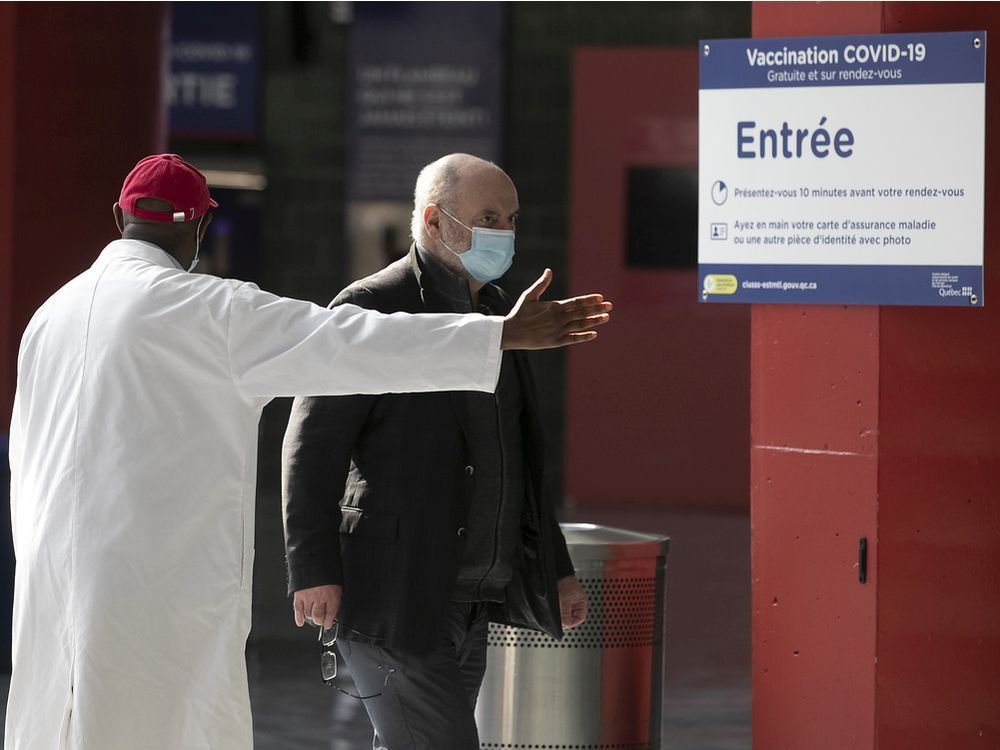overcoming vaccine hesitancy may be as simple as making a phone call, according to a new study that highlights the vital role pharmacists play in getting some people to roll up their sleeves.the program,
developed by mdbriefcase and published in the journal
vaccines, discovered that a brief conversation with a pharmacist was enough to convince 67 per cent of vaccine-hesitant patients 65 years of age and older to get the flu shot. it also uncovered that there is more than just skepticism hiking the rate of hesitancy.“this is only for this specific vaccine and this older population, but it seems to be that some of the things we hear about in terms of hesitancy may not truly be hesitancy — but actually that it’s just not top of mind,” mike boivin, a pharmacist and co-author of the work, told healthing. “what this study shows for older adults with influenza is that simply calling them — a call by somebody that they know — and saying, ‘i’d really like to get you in, we can schedule you at this time,’ most of them said yes — the vast majority said yes. a lot more people than we expected.”after completing a course on countering vaccine hesitancy, pharmacists phoned 643 adults over the age of 65 who had not received the flu vaccine from their usual source during the 2019/2020 flu season. while 169 had been vaccinated elsewhere, 67 per cent of the remaining seniors were convinced to get the shot by the end of the call. the high rate of conversion helped pharmacists reach the 75 per cent vaccination target recommended by the world health organization (who) for people in this age group.“we don’t know of really any countries that consistently meet that target and with this intervention we were able to do that in canada,” says boivin.the study found there are a whole host of reasons people don’t get vaccinated, including worries about safety and accessibility. the pandemic has only made matters worse, increasing the numbers of those missing out on other integral inoculations, including the tetanus and pneumococcal vaccines.“hesitancy also includes a lack of access,” says boivin. “the easier you can make it by removing those barriers, it also reduces vaccine hesitancy. any way that you increase overall access to people and show them where they can end up getting it — and the importance of actually receiving it — could address hesitancy in a portion of the population.”education is the biggest key in encouraging people to roll up their sleeves and pharmacists are uniquely positioned in communities across the country to provide this information, said justin bates, ceo of the ontario pharmacists association (opa).“i think there are really two camps of people,” he says. “the anti-vaxxers who are spreading misinformation and conspiracy theories and may not be able to be converted into acceptance of vaccines, and then you have what we call ‘vaccine hesitancy people,’ who are the biggest target because it’s largely education behind efficacy and safety that moves them from being hesitant to wanting to get the vaccine.”bates says conversations about safety are especially important, particularly around recent concerns about the astra zeneca vaccine.“we’ve seen an increase in hesitancy because of the changing age restrictions and guidelines due to what is a very low, low risk,” he says. “we know that all vaccines are safe. so, absolutely, there’s no question in my mind that having that conversation and reassurance and also leadership from healthcare providers in getting the vaccine are important aspects of addressing any hesitancy that’s out there.”it wasn’t long ago that pharmacists in ontario first received the expanded scope to authorize injections as a response to the spread of the h1n1 flu. bates says he would like to see this authorization further expanded, especially in light of the pandemic-provoked decrease in the uptake of other inoculations.“we do travel vaccines now but, unfortunately, it doesn’t come with the prescriptive authority so the patient still needs to go to a doctor, get a prescription, go to the pharmacy to get — in this case the twinrix vaccine — which isn’t altogether convenient or cost-effective,” he says. “we’re advocating for pharmacists to prescribe vaccines as well as deliver them. and we’re advocating for more adult and childhood immunization in pharmacies. lots of provinces have expanded in that area, and we know from our public opinion polling that there’s high favourability for patients to access pharmacies for this purpose.”ultimately, collaboration amongst all healthcare providers is the fastest way to put this long national nightmare in the past. “we need everybody who can to be engaged in this process, because the faster you can immunize the group, the faster we’ll likely get out of the pandemic,” says boivin.to that end, the pharmacist is hopeful he and his colleagues will get the chance to expand their program to other regions of the country and beyond. “we’d love to do more,” he says. “one of the reasons we tried to publish in an international journal is that we truly feel this is a program that can be implemented by pharmacists around the world, for a variety of different vaccines. i was really surprised that that many people would just say yes.“my real goal is to protect as many people as we possibly can.”
dave yasvinski is a writer with healthing.cadon’t miss the latest 世界杯决赛2022. subscribe to healthing’s daily newsletter.
 4 minute read
4 minute read








